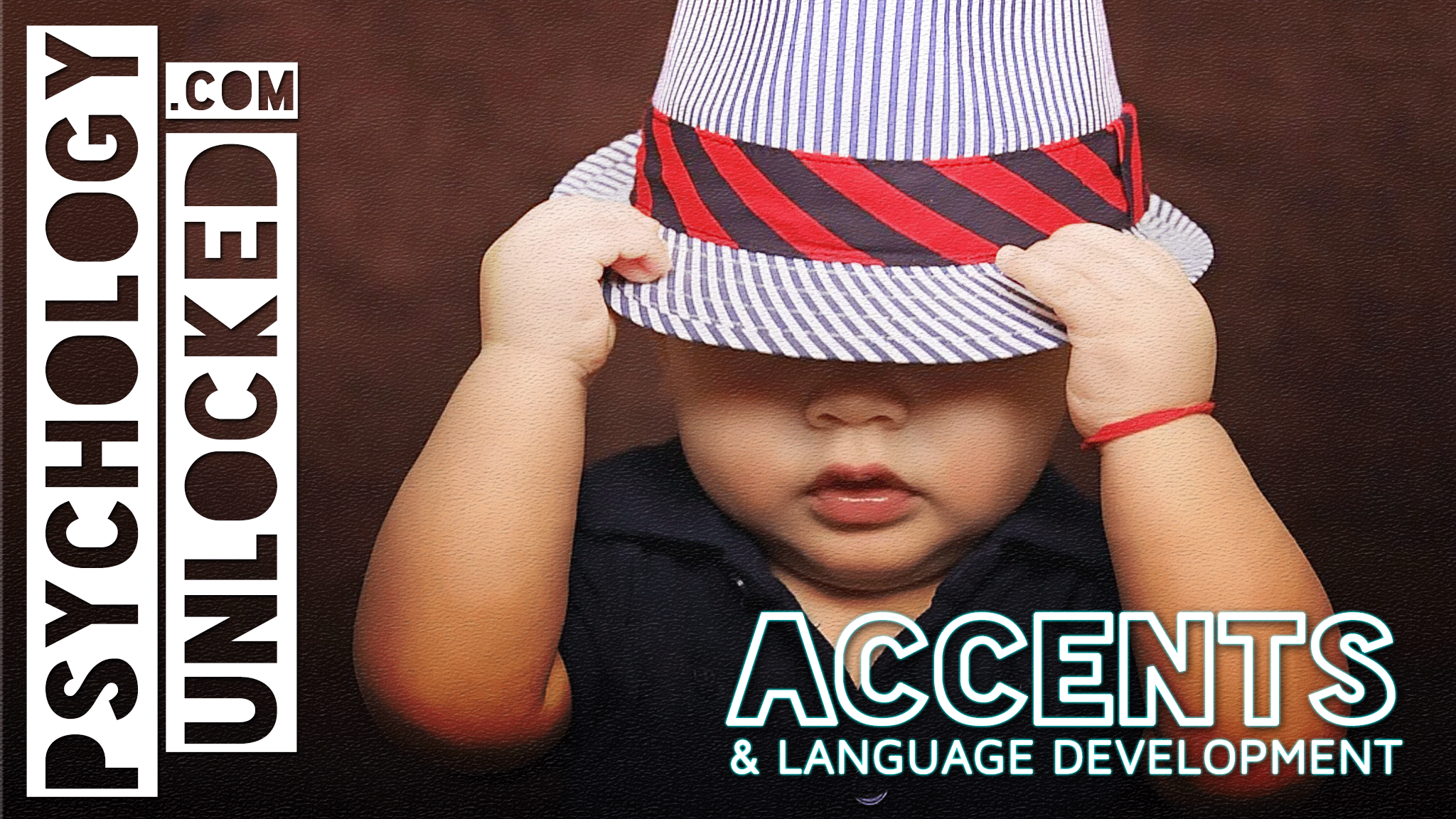
SCROLL DOWN FOR VIDEO
If you asked people to guess at what age someone develops an accent, the chances are they might say around the age of three. After they’ve started talking.
Amazingly, accents develop a lot earlier than that.
Some research suggests that accents develop even before language.
This might seem counterintuitive, but if we pause a moment and break down what an accent is then this makes perfect sense.
An accent is developed by listening to the sounds made by others around us and in turn mimicking them in order to be understood.
Language is learned by receiving before it is developed more actively.
When a baby is born, she is entirely unaware of the concept of words. However, there seems to be an innate understand that sounds are used to communicate with others.
But in the first few months, words aren’t words to a baby. They’re just sounds.
So, this makes the way someone forms words even more important than the meaning of the words themselves.
I’m sure you’ve noticed how people instinctively speak in a baby-talk when in the company of a non-verbal infant. For some reason we can’t help it.
And it’s lucky we are so natural at communicating because baby-talk and nonsense sounds are really important for a baby’s language development.
In the video above, we discuss the concept of accent development in infants less than a year old.
Not only do babies from different linguistic backgrounds “babble” differently, they are also able to hear the differences between rhythmic and non-rythmic languages from as early as one-week old.
These findings demonstrate the critical importance of language and listening in a child’s development, and can also explain with why many hearing-impaired children are initially thought to have learning difficulties, until their hearing impairment is diagnosed and effectively treated.
Check out our other videos here and if you’d like to receive a notification of each week’s latest upload remember to subscribe to our YouTube Channel.
